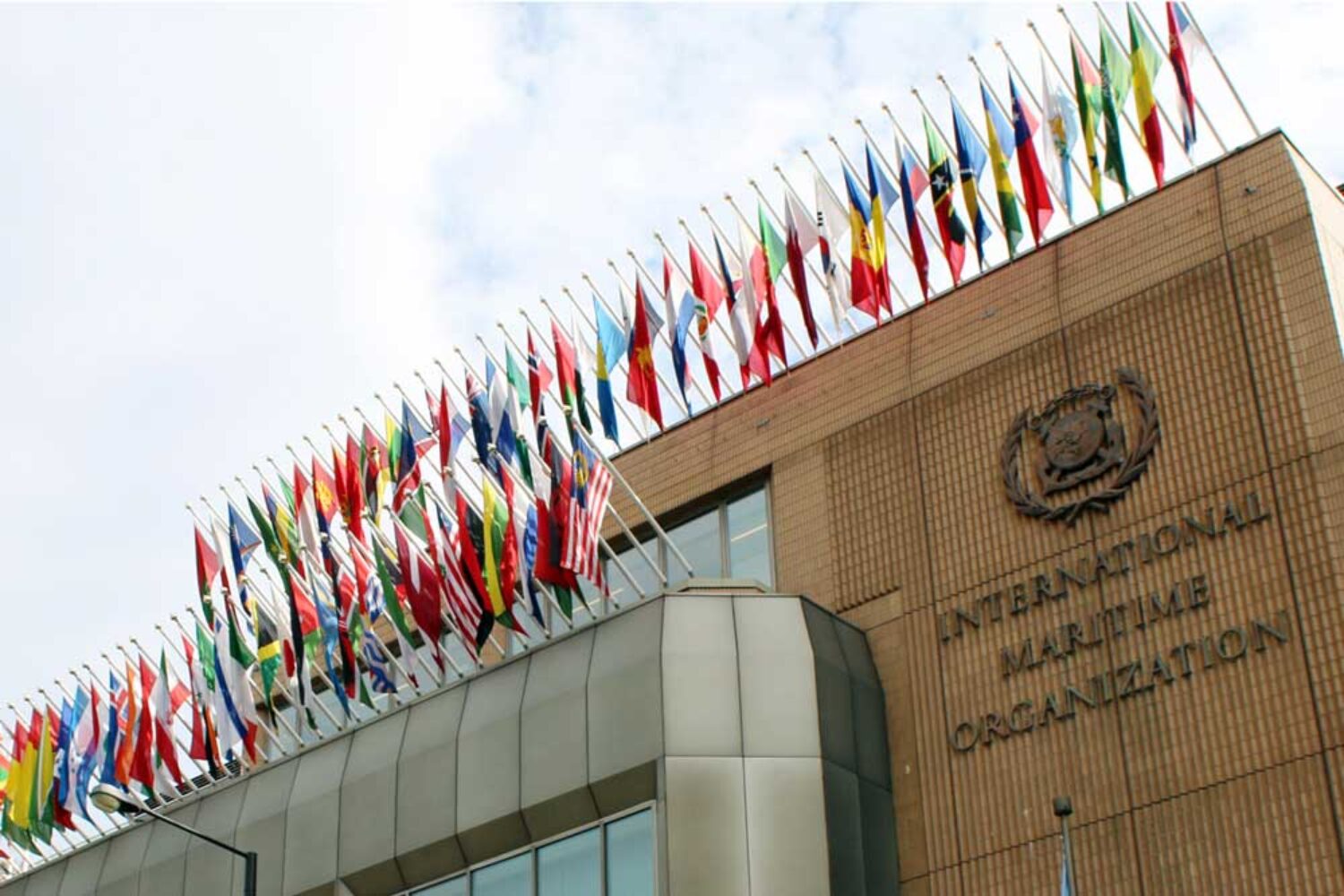In the Environment Committee, the members of the International Maritime Organization (IMO) have decided on a global CO2 tax for shipping.
This is the first global measure of its kind. However, it was not adopted unanimously. Although the resolutions are well received, there is also criticism.
At the 83rd meeting of the Maritime Environment Protection Committee (MEPC 83), which took place in London last week, the member states of the IMO agreed on new climate legislation for global shipping. The aim is to become completely climate-neutral by 2050.
The focus was on a minimum tax on greenhouse gases from ships and the associated economic measures to enforce it. In future, ships will have to reduce their CO2 emissions step by step. The so-called “Gas Fuel Intensity” (GFI) measures how many emissions are emitted per unit of energy. Ships that exceed the limits set by the IMO will have to compensate for this deficit through payments, while “compliance” will be accompanied by financial bonuses.
High levies for emissions
Ships will have to pay a price of $100 per ton of CO2 emitted as long as they are below a set limit. If emissions exceed the limit, the levy can rise to up to $380 per tonne.
Ships whose emissions exceed the set limits can offset their emissions shortfall by transferring surplus units from other ships; using surplus units already accumulated; or using offset units acquired through contributions to the IMO Net Zero Fund. This is to be set up to collect contributions from emissions levies.
Carbon pricing will generate revenues estimated at $11-14 billion per year. The money will be disbursed to reward low-emission ships, support developing countries with their climate goals, mitigate the negative effects of climate change on vulnerable countries and fund training and other measures to support the IMO’s climate strategy.
No consensus among IMO members
The proposal was not adopted unanimously. Many states had entered the negotiations with the demand for a flat-rate tax, above all the island states in the Pacific whose existence is threatened by climate change. Other countries, on the other hand, wanted a model that would recognize contributions already made to climate protection in the form of a credit.
In the end, it became a hybrid model of both proposals. 63 countries voted in favor of the adopted regulation, 16 were against and 25 abstained. The decision still has to be legally confirmed in October before the rules apply from 2027. The “Net-Zero Framework” is to be set out in the new Chapter 5 of MARPOL Annex VI. This involves 108 members, which currently cover 97% of the global fleet.
IMO Secretary-General Arsenio Dominguez described the global CO2 tax in shipping as “another important step in our joint efforts to combat climate change and modernize shipping.” “Now it is important to continue working together, engaging in dialog and listening to each other to create the conditions for successful implementation.”
Approval and criticism
The new global CO2 tax received support from several organizations in the shipping industry. “Today will hopefully be remembered as a historic moment for our industry,” said Guy Platten, Secretary General of the International Chamber of Shipping (ICS), at the end of the committee. “If this award is formally adopted, shipping would be the first sector to have a globally agreed CO2 levy. ICS has been advocating for this since COP 26 in 2021, when the industry agreed on a net-zero target for 2050. Shipping is now at the forefront of efforts to rapidly decarbonize to tackle the climate crisis. Governments around the world have now put forward a comprehensive agreement which, while not perfect in every respect, will be formally adopted later this year.”
“We are pleased that the IMO has stuck to its principles of goal-oriented, technology-neutral regulation,” says the Sea-LNG organization. “While many details still need to be clarified, this provides a clear framework for the decarbonization of the global shipping industry and enables a level playing field for all fuels – whether methane (LNG), methanol or ammonia.”
However, not all voices were so optimistic. Kostas Gkonis, Secretary General of the International Association of Dry Cargo Shipowners (Intercargo), expressed concerns: the IMO measure was too complex and the demands for a “simple, practical and therefore effective approach” had been ignored.
There was both support and criticism from the German nature conservation association Nabu. President Jörg-Andreas Krüger described the resolutions as “an important geopolitical signal for international climate protection and shipping in uncertain times”. The CO2 tax would make it possible for fossil fuels to be gradually phased out of the industry.
However, Lukas Leffert, Shipping Officer at Nabu, pointed out the weaknesses of the IMO resolutions. “Instead of simple and comprehensive pricing, a complex and uncertain trading system has been adopted – with far too low a level of ambition,” he said. The planned reduction targets are too low and the pricing ignores almost 90% of total emissions. “It is particularly worrying that the wrong solutions such as biofuels are being promoted instead of climate-neutral fuels and a fair transition.”
USA stayed away from MEPC 83
In addition to the carbon tax, other measures were adopted as part of MEPC 83, including a plan to combat plastic waste in the sea, progress in dealing with ballast water and the adoption of an emissions control zone in the Atlantic – the largest of its kind in the world.
The committee met in the shadow of an ever escalating trade war between the USA and the rest of the world, led by China. Representatives from Washington stayed away from the MEPC, and America made it clear that it would reject any kind of emissions tax. In a letter, the Trump administration called the levies “patently unfair” and has already announced its intention to impose countermeasures if the IMO decisions result in higher costs for US ships. (JW)













